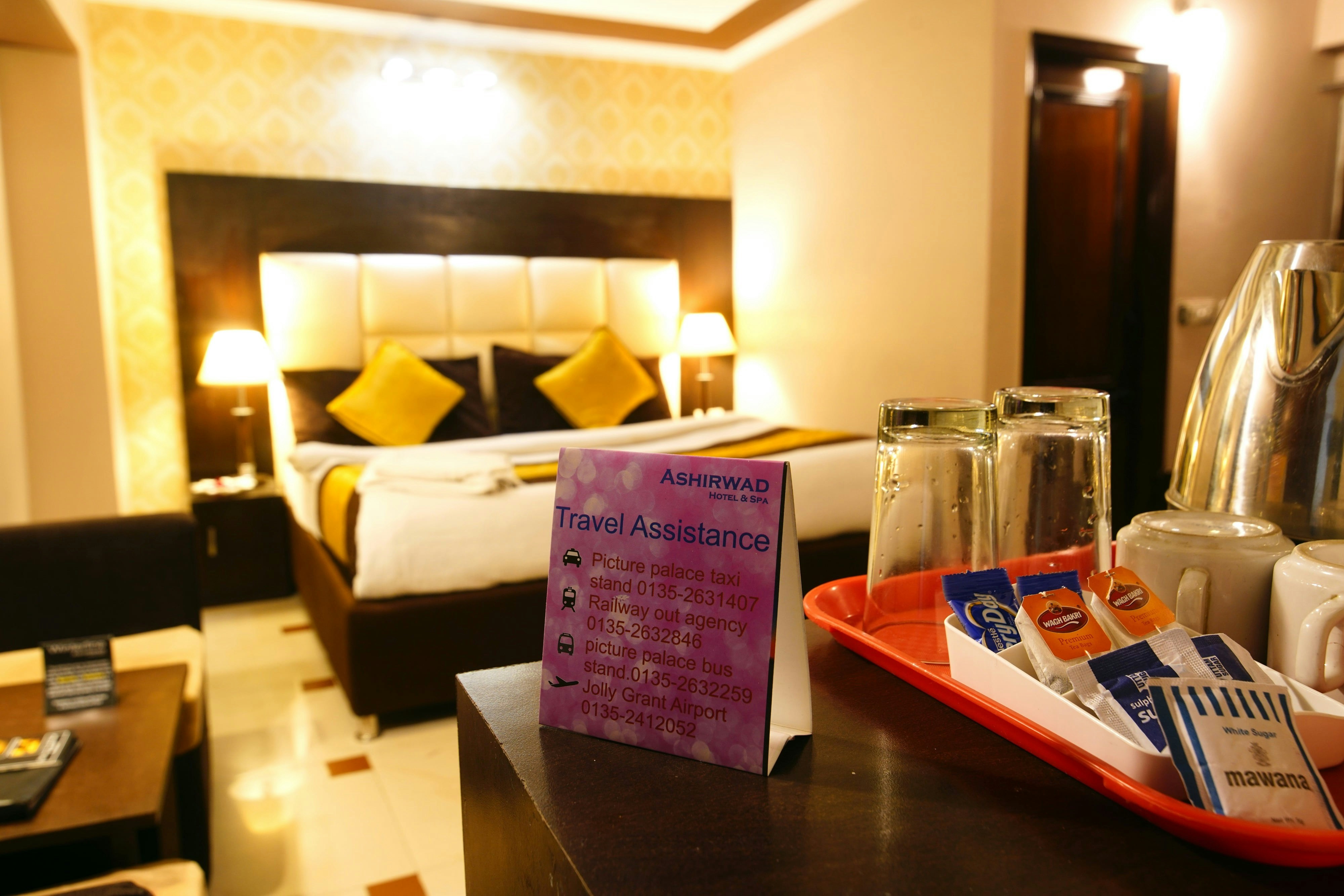Introduction to Hotel Deals
Traveling offers individuals the opportunity to explore new cultures, landscapes, and experiences. However, one of the critical aspects of travel that can significantly impact the overall enjoyment is accommodation. Finding the right hotel deals is essential for travelers seeking to balance quality and cost. While budget constraints are a significant factor for many, it is equally important to ensure that the lodging meets fundamental standards of comfort, cleanliness, and service.
In a market saturated with various options, navigating through hotel deals can appear daunting. Yet, a well-planned approach allows travelers to discover accommodations that not only fit their budgets but also enhance their travel experiences. The significance of choosing the right hotel goes beyond mere financial implications; it can directly affect the trip’s enjoyment and comfort. A hotel that offers excellent service, a convenient location, and essential amenities can transform a simple getaway into a memorable adventure.
To achieve the perfect balance between cost and quality, travelers must engage in thorough research before finalizing their bookings. Taking the time to compare different hotel deals, locations, and the amenities offered is crucial. This comprehensive approach includes reading reviews from previous guests, exploring special deals or discounts, and examining various booking platforms to find the best options. By leveraging technology and the wealth of information available online, travelers can make informed decisions that ensure their accommodations reflect both their needs and preferences without exceeding their budget.
This blog post aims to share strategies for finding the best hotel deals while upholding quality standards. Whether traveling for business or leisure, understanding how to navigate the accommodation landscape can lead to a more enriching travel experience. By following the insights discussed here, travelers will be better equipped to secure excellent hotel deals that align with their expectations and enhance their overall journey.
Understanding Your Budget
When planning a trip, the first and arguably most crucial step is to establish a realistic travel budget. Understanding your financial limits not only sets the foundation for accommodations but also influences other aspects of your travel, including transportation, meals, and activities. A well-rounded budget will ensure that all essential components of your trip are adequately funded, thereby enhancing your overall experience.
To begin with, outline your estimated expenses for transportation. This includes airfare, train tickets, or fuel costs for road trips. Once you have a clear figure for travel expenses, you can allocate a portion of your budget for accommodations. It is vital to recognize that lodging is often one of the largest expenses for travelers. Therefore, taking the time to carefully evaluate how much you can afford to spend on hotels is essential for maintaining the quality of your trip.
Next, consider your daily expenses on meals and activities. Dining options can vary widely in cost, and activities can often run the gamut from free attractions to expensive excursions. By determining how much you are willing to dedicate to these areas, you can further refine your hotel budget. Remember, prioritizing your spending based on what is most important to you will provide clarity and allow for better use of your resources.
Furthermore, adopting a flexible approach to your budget can lead to discovering better hotel options. For instance, being open to adjusting your travel dates can prove beneficial, as hotel rates often vary significantly based on demand. Overall, understanding your budget will empower you to balance cost with quality, ensuring a gratifying travel experience while also respecting your financial limits.
Researching Hotel Options
Finding the best hotel deals without compromising on quality can be a daunting task in today’s travel landscape. With an array of hotels available, thorough research is critical in uncovering the ideal options. One of the best starting points for research is utilizing hotel comparison websites. These platforms allow travelers to input their desired destination, dates, and preferences, presenting a side-by-side comparison of amenities, prices, and locations. By leveraging these tools, potential guests can quickly identify which hotels align with their budget and quality standards.
Another effective method for researching hotels is to read reviews from trusted platforms. Websites such as TripAdvisor, Booking.com, and Google Reviews enable travelers to gain insights from previous guests about their experiences. Pay particular attention to feedback regarding cleanliness, staff service, and overall satisfaction. Reviews often reveal critical information that can affect a decision, helping travelers discern which hotels genuinely live up to their advertised standards. Be sure to consider the quantity of reviews and the date of the feedback, as recent comments will usually provide a more accurate picture of the hotel’s current state.
Additionally, checking user-generated content on social media platforms can yield valuable insights. Travelers frequently share their hotel experiences on platforms like Instagram and Facebook, where you can view candid photos and comments about their stays. This type of content often provides a more authentic representation of the hotel environment, amenities, and atmosphere. It is essential to find credible sources during your research and utilize hotel ratings wisely. Inspecting the overall star rating as well as specific details regarding cleanliness, service, and location can guide you toward making a well-informed decision that balances quality and cost.
Utilizing Price Alerts and Tracking Tools
In today’s digital age, technology plays a crucial role in helping travelers secure the best hotel deals without sacrificing quality. One effective strategy is utilizing price alert apps and websites, which enable users to monitor price fluctuations for their desired accommodations. By setting price alerts, travelers can receive notifications directly to their devices, ensuring they are informed about any changes in hotel rates.
To begin, it is essential to identify the websites and apps that offer price tracking services. Major travel booking platforms, such as Kayak, Hopper, and Google Hotels, provide user-friendly interfaces that allow individuals to set alerts for specific hotels or destinations. After selecting the preferred hotel, users can input their travel dates and desired price range. The application will then automatically track any changes in rates, sending alerts when the prices drop to or below the specified threshold.
Moreover, travelers should be cognizant of the timing when booking their hotels. Prices often fluctuate based on demand, seasonality, and local events. By leveraging price alert tools, travelers can analyze these fluctuations over time. This approach not only provides insights into timing for potential bookings but also allows travelers to make informed decisions based on historical price trends. In essence, tracking tools can serve as a wealth of information, illustrating the best times to book specific hotels.
Finally, it is important to combine these digital tools with broader research on hotel reviews and quality assessments. Price alerts can guide you to the best financial opportunities, while user feedback can help ensure that the accommodations meet your quality expectations. By utilizing technology smartly, travelers can confidently navigate through countless options, ultimately securing the best hotel deals while maintaining high standards for their stay.
Timing Your Booking Strategically
Finding the best hotel deals often hinges on timing, making it essential to understand the seasonal patterns and pricing trends of establishments. One of the key strategies for securing affordable accommodation without compromising on quality is booking during the off-season. Typically, this period varies by destination; however, it generally coincides with colder months or times when tourism is at its low. During such intervals, hotels may implement significant discounts to attract guests, thus providing an excellent opportunity for travelers to secure lower rates for high-quality stays.
Another strategic approach involves keeping an eye on last-minute deals. Hotels frequently reduce prices close to the date of stay in an attempt to fill vacant rooms. This tactic can yield substantial savings, particularly if one is flexible with their travel dates. However, it is important to note that while this approach can be rewarding, it is also laden with risks if specific amenities or locations are critically desired. As a result, travelers should weigh their options carefully and consider how essential flexibility is in their booking process.
Additionally, being aware of promotional offers can enhance the chances of securing prime hotel deals. Many hotels roll out special promotions during certain times of the year, for instance, holiday seasons, anniversaries, or significant local events. Signing up for hotel newsletters or loyalty programs can grant early access to these promotions and exclusive deals. It is also beneficial to compare prices across various platforms to identify the best rates during peak promotional times.
In essence, understanding how demand affects pricing and knowing the optimal windows for booking can empower travelers to find exceptional hotel deals that do not sacrifice quality. Therefore, employing a strategic approach to timing can significantly impact the overall travel experience.
Loyalty Programs and Membership Discounts
Hotel loyalty programs and membership discounts represent a strategic approach to saving on accommodation costs without sacrificing quality. These programs, offered by various hotel chains and online travel agencies, are designed to reward frequent travelers with a range of benefits. One of the most significant advantages of joining a loyalty program is the ability to accumulate points for each stay. These points can later be redeemed for free nights, room upgrades, or other exclusive perks, significantly enhancing the value of your travel budget.
By enrolling in a membership program, travelers not only gain access to special rates that are typically lower than standard prices, but they also enjoy enhanced personalized services. Many hotel loyalty programs offer members priority check-in, late checkout, and complimentary breakfast, making a stay more enjoyable. These added benefits contribute to a more comfortable and rewarding travel experience. Furthermore, hotels may provide exclusive promotional rates or bonuses during specific periods, allowing members to take advantage of additional savings.
Additionally, it is worth noting that frequent travelers can also leverage their memberships across different brands that have partnerships. This creates a larger network of opportunities for earning and using points. Ultimately, joining hotel loyalty programs can yield substantial benefits for those who travel regularly, encouraging wise spending while assuring high-quality accommodation. As such, it is advisable for travelers to explore and sign up for these programs, as they enrich the travel experience while ensuring budgetary constraints are met.
In conclusion, hotel loyalty programs and membership discounts serve as valuable tools for travelers seeking to optimize their expenditure on quality accommodations. By understanding the benefits of these programs, individuals can substantially enhance their travel experiences while enjoying significant savings.
Negotiating for the Best Rate
When it comes to securing the best hotel deals, negotiation can play a critical role in obtaining a favorable price without compromising on quality. One effective strategy is to reach out directly to the hotel staff via phone or email to inquire about unpublished rates, which are often not advertised online. This approach allows for a personal touch, making it easier to build a rapport with the receptionist or manager. To enhance your negotiation efforts, consider using a polite and appreciative tone while expressing genuine interest in staying at the property.
Another key strategy is to ask about any available discounts, such as promotions for AAA members, military personnel, or loyalty program participants. Many hotels offer special rates that are not widely publicized, and inquiring about these can sometimes lead to significant savings. If you have previously stayed at the hotel or have a member of your family or friends who has, leveraging that existing relationship can be advantageous. Sometimes mentioning such loyalty can lead to perks like room upgrades or better rates.
Role-playing scenarios can also prepare you for the negotiation process. For example, consider a script where you initiate the conversation with, “Hello, I’m planning a stay at your hotel and wanted to ask if there are any special rates or promotions available for my dates.” This straightforward yet polite approach opens the door for discussion and demonstrates your awareness of potential flexibility in pricing. Make sure to maintain open communication and express gratitude for any help you receive, as a friendly demeanor can often lead to better outcomes in negotiations.
By utilizing these techniques and strategies, travelers can effectively negotiate hotel prices to secure the best possible deals without sacrificing the quality of their accommodations.
Considering Alternative Accommodation Options
When searching for hotel deals that do not compromise on quality, it is essential to explore various alternative accommodation options. Vacation rentals, hostels, and boutique hotels provide distinct advantages and disadvantages, often presenting travelers with the opportunity to experience unique lodging while maintaining a reasonable budget.
Vacation rentals, such as those listed on platforms like Airbnb or Vrbo, can offer significant savings, especially for families or groups traveling together. These accommodations often come equipped with full kitchens, allowing guests to prepare meals and reduce dining expenses. Additionally, many vacation rentals are located in residential neighborhoods, which can provide a more authentic experience of the local culture. However, potential drawbacks include varying quality standards and the need to manage bookings directly with the owner.
Hostels are another alternative that caters to budget-conscious travelers. Traditionally associated with a younger demographic, hostels now attract a diverse clientele by offering both dormitory-style rooms and private accommodations. Hostels often foster a communal atmosphere, facilitating social interactions and camaraderie among guests. They typically offer lower rates compared to hotels and may include amenities such as free Wi-Fi and kitchen facilities. On the downside, shared facilities such as bathrooms can be less appealing for those seeking privacy and comfort.
Boutique hotels present a third option that bridges the gap between traditional hotels and more unconventional lodgings. These smaller, often independently owned properties pride themselves on their unique design and personalized service, becoming popular among travelers who appreciate distinctive experiences. While boutique hotels may have higher rates than other alternative accommodations, they can still provide competitive pricing compared to luxury chains, often exceeding expectations in terms of quality and individual charm.
By thoroughly researching these alternatives, travelers can discover options that offer quality experiences at potentially lower prices, steering clear of traditional hotel limitations. Taking the time to evaluate each type of accommodation will undoubtedly aid in finding the ideal lodging while maintaining a budget-friendly approach.
Conclusion and Key Takeaways
Finding the best hotel deals while maintaining a focus on quality is a critical aspect of any travel planning process. Throughout this blog post, we highlighted several effective strategies that can empower travelers in their search for affordable yet high-quality accommodations. One of the primary strategies discussed is the importance of thorough research. By leveraging online comparison tools and reading reviews, travelers can make informed decisions about where to stay without falling into the traps of overpriced options.
Timing also plays a significant role when seeking hotel deals. Understanding the seasonal fluctuations in hotel pricing can enable travelers to book during off-peak periods when rates are typically lower. Additionally, flexibility in travel dates can further enhance one’s chances of securing a deal that reflects both economic savvy and comfort. This strategic approach ensures travelers can enjoy their experience without financial strain.
Another crucial point is the art of negotiation. Many travelers underestimate the value of simply asking for discounts or additional perks. Engaging directly with hotel staff can often yield unexpected benefits, allowing guests to maximize their stay with added value that enhances the overall experience. Furthermore, loyalty programs offer another avenue for obtaining quality deals. Joining such programs can lead to significant savings, complimentary upgrades, and exclusive offers tailored to frequent guests.
In closing, the pursuit of quality hotel deals requires a balanced approach that encompasses research, timing, negotiation skills, and the smart use of loyalty programs. As you plan your next trip, consider these strategies to enhance both your travel experience and budget. By prioritizing quality alongside cost, you can ensure a satisfying and enjoyable stay, creating lasting memories without overspending.



